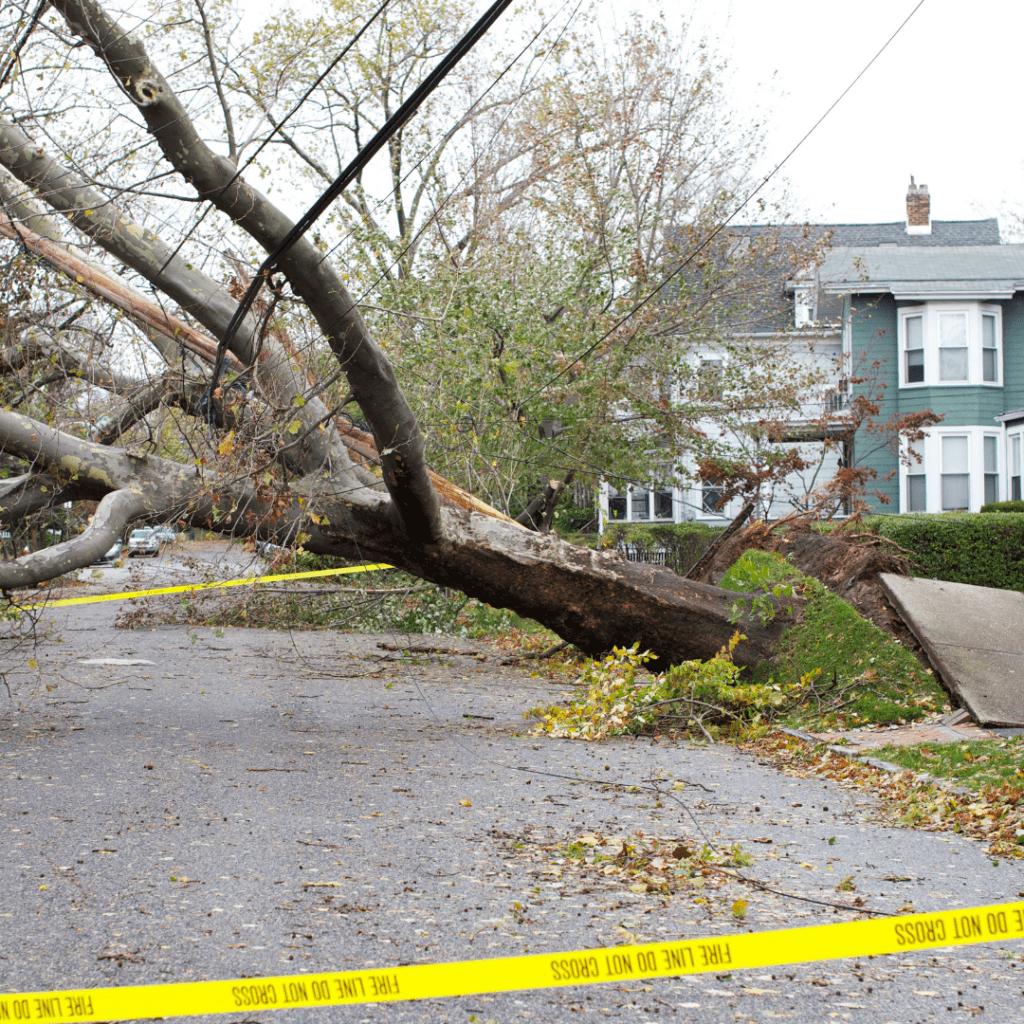June 1 is the start of hurricane season in the Atlantic and Caribbean. Due to our location, Georgia is vulnerable to the storms and hurricanes that can form in these waters. It is vital that residents prepare for such potential disasters.
NOAA’s outlook for the 2025 Atlantic hurricane season predicts a 60% chance of an above-normal season. The agency is forecasting 13 to 19 total named storms (winds of 39 mph or higher). Of those:
- 6-10 are forecast to become hurricanes (winds of 74 mph or higher) and
- 3-5 major hurricanes (category 3, 4 or 5; with winds of 111 mph or higher).
Continue reading to learn tips to help keep you and your loved ones safe this hurricane season.
Know Your Risk
While Georgia is a coastal state, hurricanes can cause damage far beyond the coast. Hurricanes like Helene and Debby reached farther inland than where they made landfall, leaving communities devastated by flooding and wind damage.
To help you stay aware of how hurricanes can affect your area, you can:
- Frequently monitor and check local forecasts from local meteorologists. They are familiar with local communities and know which areas are most vulnerable to damage caused by storm surge, flooding, and wind.
- Enable wireless emergency alerts on your mobile devices. Local authorities often issue storm watches or warnings via these alerts.
Know the difference between a Watch and a Warning
Stay prepared for a weather event before it comes knocking.
- Monitor local news and weather reports regularly
- Make an emergency plan.
- Gather emergency supplies before an emergency. A disaster supplies kit is a collection of basic items your household may need in the event of an emergency.
- Safeguard critical financial, medical, and legal documents and records
- Review your insurance policies to ensure that you have adequate coverage for your home and personal property.
Evacuation and Sheltering in Place
Depending on your location, local authorities may recommend that you evacuate before the storm hits or take shelter during the storm. Those living in flood zones or temporary structures, such as mobile homes, are particularly at risk of damage from hurricanes.
In case of evacuation, you should:
- Determine an evacuation location. Have an out-of-area contact – a friend or family member in an unaffected area that you can stay with during the storm – or a list of places you can easily travel to in case of emergencies.
- Bring a Go-Bag. A go-bag is an emergency kit that can easily be taken in the event of an evacuation or other emergency that requires you to leave your home. This may include power banks, non-perishable foods, water, medications, extra clothing, cash, copies of medical or legal documents, or hygiene products.
If you’re sheltering in place, it’s important to:
- Prepare for flooding. In case of flooding or a flood warning, move to higher ground and avoid walking through flood water or driving on flooded roads.
- Prepare for strong winds. When sheltering inside, stay away from windows and lock doors that lead to the outdoors and seek shelter on the lowest level in an interior room. For outdoor items, such as furniture or decor, that are loose and lightweight, make sure to bring and secure them inside. Anchor large outdoor objects and trim or remove trees that are close enough to fall on buildings.
- Monitor updates from local authorities. It’s important to have the latest storm updates and guidance from local authorities.
- Keep non-perishable foods &
- Build a home emergency kit. Similar to a go-bag, your home emergency kit should contain important and necessary supplies. This may include power banks, batteries, non-perishable foods, water, medications, extra clothing, cash, or hygiene products.
- Safeguard important items. Make sure to keep your physical financial, medical, and legal documents or records safe during disasters and always have a digital copy in case of damage.
Use caution After a Hurricane or Storm
- Walk carefully around the outside of your home to check for loose power lines, gas leaks, and structural damage.
- Stay out of any building if you smell gas or if floodwaters remain around the building.
- Never use a portable generator inside your home or garage. Carbon monoxide poisoning is one of the leading causes of death after storms in areas dealing with power outages.
Our emergency preparedness team is here to answer questions and provide guidance on how you can prepare for an emergency. If you would like more information, please give us a call at 770-339-4260.
Additional Resources
Preparing for Hurricanes and Storms






